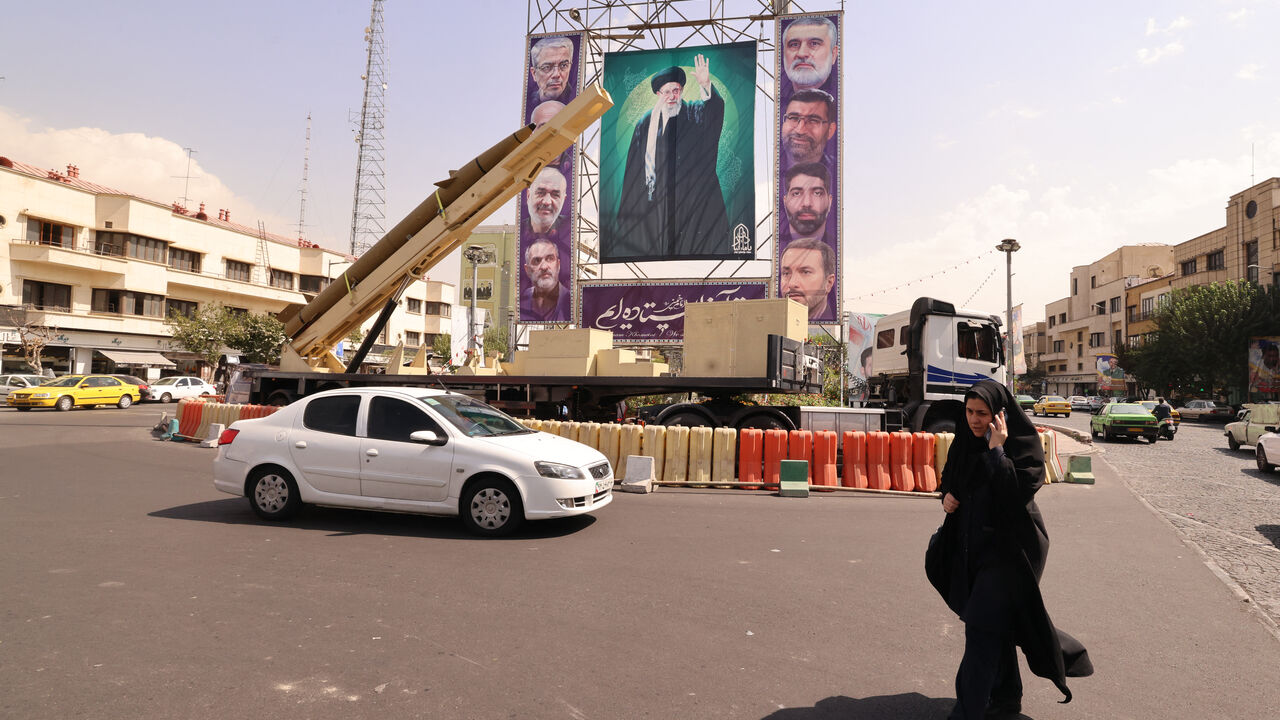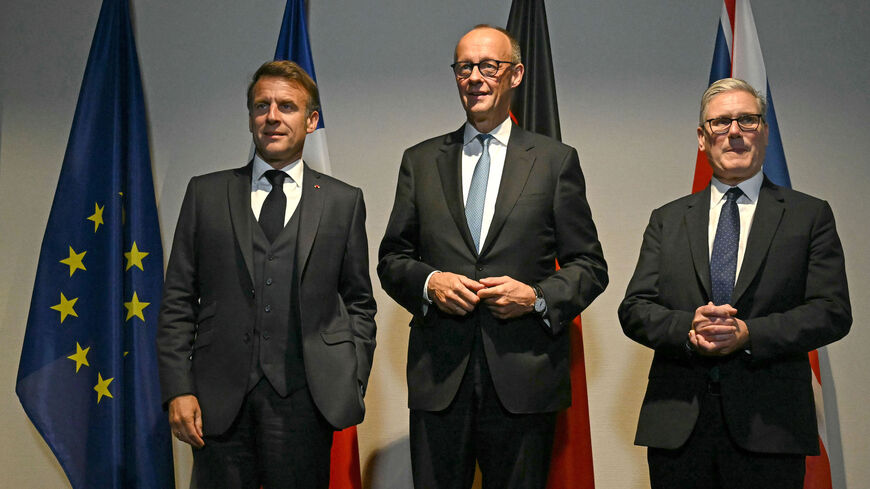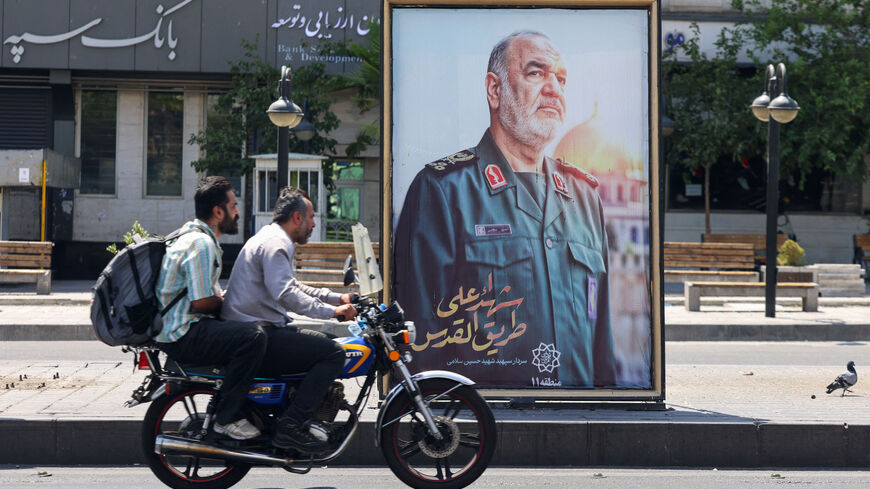US targets Iran's military tech with sanctions after allies trigger snapback
New sanctions aim to increase pressure on Iran to restrict the IRGC’s relentless development of ballistic missiles and military aircraft, but risk pushing Tehran further into the orbits of Russia and China.

WASHINGTON — The Trump administration on Wednesday unveiled a bevy of economic sanctions targeting 17 individuals and 21 entities that the State Department accused of being affiliated with Iran’s nuclear enrichment program and/or military procurement efforts.
The latest US sanctions target five individuals allegedly tied to the Iranian government-sponsored agency that experiments with dual-use technology, which US officials say could eventually be used to produce a nuclear weapon.
“Iran’s Organization of Defensive Innovation and Research (SPND) … is the direct successor to Iran’s pre-2004 nuclear weapon program,” read a statement by Secretary of State Marco Rubio, who also serves as the current US national security adviser.
Several other individuals and companies were targeted for alleged involvement in the Iranian Defense Ministry’s efforts to acquire components to produce ballistic missiles and military aircraft.
“These networks have assisted in activities including the procurement of technology for advanced surface-to-air missile systems and the illicit purchase of a US-manufactured helicopter,” the Treasury Department said in a statement Wednesday.
“Iran’s ballistic missile and conventional weapons capabilities, supported by the networks designated today, pose a significant threat to US service members in the Middle East, US commercial ships transiting international waters and civilians,” the statement read.
Why it matters: The latest tranche of economic pressure from Washington follows the European Union’s announcement on Monday that it had reimposed its own wide-ranging sanctions on Iran in line with the “snapback” mechanism enshrined in the 2015 nuclear deal.
Iran continuously violated the 2015 multinational agreement by enriching uranium beyond proscribed purity limits in response to the United States’ unilateral withdrawal from the deal in 2018.
Iranian leaders have long insisted their nuclear program is for peaceful purposes, but US officials and experts have viewed the government’s enrichment of uranium to levels around 60% purity as a form of brinkmanship designed to test Washington’s resolve.
Iranian Supreme Leader Ayatollah Ali Khamenei last week publicly ruled out direct talks with the United States after it backed Israel’s surprise military offensive in June that killed several top Iranian military leaders and reportedly narrowly missed the country’s president, Masoud Pezeshkian.
Despite back-channel exchanges and public invitations — as well as threats — by US President Donald Trump, there’s been little outward indication that Iranian officials are in any hurry to return to mediated negotiations with Washington.
The newly restored sanctions cover everything from Iran’s central bank and other financial institutions linked to its defense industry, along with a ban on the importation of Iranian oil and the export of technology that could aid Iran’s enrichment of uranium.
The decision to reimpose the sanctions came amid a failure of Iranian officials and top diplomats from France, the UK and Germany (the E3) to reach a compromise on Iran’s future compliance with UN inspections in the aftermath of surprise US airstrikes, which Iranian officials said heavily damaged three of the country’s key nuclear facilities.
What’s next: “The E3 and the United States have repeatedly offered diplomatic avenues in good faith to Iran to avoid the snapback and reach a durable and comprehensive negotiated resolution,” read a statement released by the Group of 7 countries Wednesday.
“Diplomacy remains essential now that the UNSC process has led to the reimposition of sanctions. We call on Iran to refrain from any escalatory action, immediately engage in direct talks with the United States and make demonstrable progress toward fully meeting its nuclear non-proliferation obligations,” the statement added.
Know more: Among those targeted by the latest round of US sanctions are SPND Director Reza Mozaffarinia, who was also sanctioned by the United States in May 2013; DamavandTec, a company the United States says “facilitated travel for Iranian nuclear experts to Russia to pursue sensitive dual-use technologies” with nuclear-weapons applicability; and Ali Bakouei, whom the US accuses of having “attempted to procure items applicable to the development of nuclear explosive devices from foreign suppliers.”





